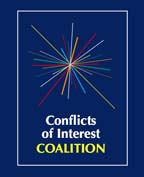Who, what, why?
Baby Milk Action
Baby Milk Action is an independent voice that protects babies and their families. We take no funding from companies. As part of a global network, we act to stop misleading marketing by the baby feeding industry. We protect breastfeeding and babies fed on formula to prevent unnecessary death and suffering.
IBFAN
We are the UK member of the International Baby Food Action Network (IBFAN), consisting of more than 270groups in over 160 countries. http://www.ibfan.org/
Baby Feeding Law Group
 Baby Milk Action is the Secretariat for the Baby Feeding Law Group which works to bring UK legislation into line with UN Resolutions. BFLG members include mother-support groups and professional bodies such as the Community Practitioners and Health Visitors’ Association, the Royal College of Midwives, the Royal College of Nursing, the Royal College of Paediatrics and Child Health, and UNICEF’s Baby Friendly Initiative. http://www.babyfeedinglawgroup.org.uk/
Baby Milk Action is the Secretariat for the Baby Feeding Law Group which works to bring UK legislation into line with UN Resolutions. BFLG members include mother-support groups and professional bodies such as the Community Practitioners and Health Visitors’ Association, the Royal College of Midwives, the Royal College of Nursing, the Royal College of Paediatrics and Child Health, and UNICEF’s Baby Friendly Initiative. http://www.babyfeedinglawgroup.org.uk/
 Conflict of Interest Coalition logo
Conflict of Interest Coalition logo
Conflict of Interest Coalition
We were a founder member of the Conflict of Interest Coalition formed in 2011 to safeguard public health policy-making from commercial influence.162 organisations representing over 2000 NGOs signed the original statement.
http://www.coicoalition.blogspot.com/
International Code
We work for controls implementing the International Code of Marketing of Breastmilk Substitutes (The International Code). This Code was adopted in 1981 by the World Health Assembly (WHA), the world’s highest policy setting body. The International Code bans all promotion of breastmilk substitutes and was adopted as a 'minimum requirement' to be implemented by member states 'in its entirety'. The Code should be read with subsequent WHA Resolutions on infant and young child feeding.
Order the International Code and Resolutions in our online Virtual Shop.
Protecting breastfeeding
There is no food more locally produced or sustainable than breastmilk. A breastfed child is less likely to suffer from gastroenteritis, respiratory and ear infections, diabetes, allergies and other illnesses. In areas with unsafe water a bottle-fed child is up to 25 times more likely to die as a result of diarrhoea. Improving breastfeeding rates could save 800,000 lives around the world every year. Breastfeeding helps fulfill the UN Millennium Development Goals and has the potential to reduce under-5 mortality by 13%. A further 6% of deaths could be saved through appropriate complementary feeding. Breastfeeding provides health benefits to the mother, such as reduced risk of some cancers.
Protecting babies fed on formula
Breastmilk substitutes are legitimate products for when a child is not breastfed and does not have access to expressed or donor breastmilk.
Companies should comply with composition and labelling requirements and other Code requirements to reduce risks - independently of government measures. Parents have a right to accurate, independent information.
Baby Milk Action is not anti-formula, but we are anti-irresponsible marketing. We work to protect the right of all families and health workers to accurate, independent information on infant and young child feeding.
Contact details
Baby Milk Action, 34 Trumpington St, Cambridge, CB2 1QY, UK
Tel: (01223) 464420 Fax: (01223) 464417





